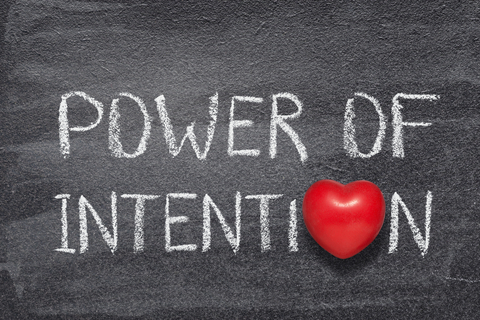Why Setting an Intention for a Day or a Year Can Help You Achieve Your Goals
Most of us have plans and goals for our future. We want to see our efforts bear fruit and take steps towards that end. We often skip over a vital step, however. That step is setting an intention.
Setting an intention means we give much more focus to a particular goal. Having an intention gives us motivation and purpose, because it clarifies our direction and our actions.

Key factors for Setting an Intention
There are two key factors needed to set a proper intention. One is your desire and the other is your motivation to follow through. Most of us will encounter challenges on the way to a goal, and it is your desire and motivation to follow through that will continue to move you forward through those hurdles.
Types of Intention
There are really two types of intentions – conscious and subconscious. Your subconscious intentions remain under the surface, but conscious intentions remain top of mind. These conscious intentions motivate you to move forward towards your objectives.
Intentions can be as simple as wanting to help someone or do good in some way. You may intend to clean a room later in the day or catch up with a friend on the phone. You can have an intention to stay calm and centered during a long day of travel.
Setting intentions for your life can set the tone for how you live each day because it is our day to day living that influences our outcomes over time.
For example, you may set an intention that you want to get in great physical condition a year from now. You can begin to do that by aiming to eat healthier, beginning an exercise program, monitoring your sleep, drinking more water and managing stress. Maybe you hire a nutritionist or a personal trainer. You carry out your intentions by the daily actions you take and the habits you form over time.
Setting an intention doesn’t have to be limited to a long-term vision, though. You can set an intention for the day, for the week, or the month. You can set an intention before you go into an important meeting that the outcome will be a win for all involved.
Setting intentions doesn’t have to be limited to one area of your life. If you are married or have a partner, you can set an intention to have a closer and healthier relationship. You can aim to be more thoughtful of your partner, spend more time together, be more patient.
Why is it important to set intentions?
Creating an intention helps us to gain more clarity on what’s most important to us and helps us to become more focused on who we want to be. It gives us direction that can help align our actions and keep us on track.
You don’t have to write down your intentions, but you may find it more powerful when you do. Writing our intentions down provides us with visual evidence of that intention and can serve as reminder when we refer back to it or post it somewhere nearby.
There’s another process that goes on at a deeper level when we write things down, though, called encoding.
Encoding is the process where our brain sorts through information and decides what’s important and what can be cast off. From there the brain stores what it deems significant in our long-term memories. Writing helps this encoding process and makes it more likely that we will remember our intention. In this way you are using your brainpower as an essential tool to achieve maximum efficiency in every area of your life!